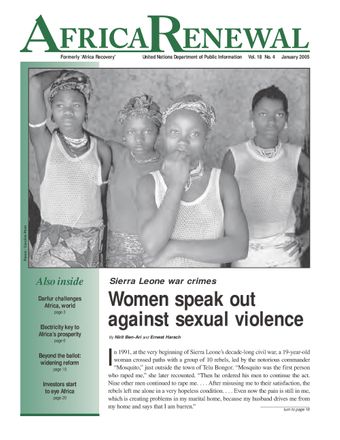-
States call each other to account
- Source: Africa Renewal, Volume 18, Issue 4, Jan 2005, p. 14 - 15
- French
-
- 31 Jan 2005
Abstract
Setting the pace for other African states, Rwanda has become one of the first to allow external oversight of its performance under a new continental peer review programme. Rwanda’s assessment began in February 2004 under the African Peer Review Mechanism (APRM), an instrument that seeks to promote democracy and accountability on the continent. “Despite the significant economic and social progress made in the recent past, Rwanda still faces heavy challenges,” says Mr. Claver Gatete, a high-ranking Rwandan government official. Those relate mainly to the economic structure and poor governance, which contributed to the 1994 genocide, he explains. Rwanda confronts insufficient or ineffective government structures, a weak public sector, high population growth rates and unemployment. It also faces a host of economic and social problems that make the country difficult to run. Rwanda witnessed one of the worst genocides in modern history when 800,000 people, mainly ethnic Tutsis, were killed by militias and armed forces linked to the government in power at the time.
© United Nations



